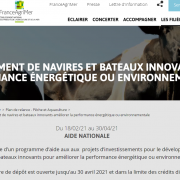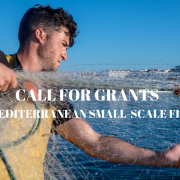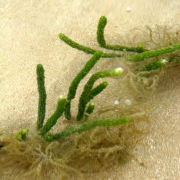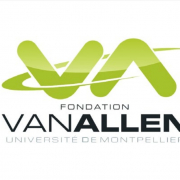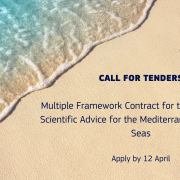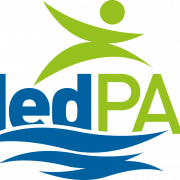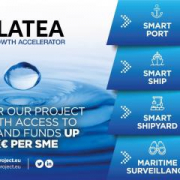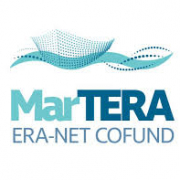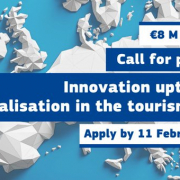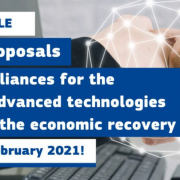Aide au développement de navires et bateaux innovants améliorer la performance énergétique ou environnementale
Deadline: 30 April 2021
Budget: 15 Million euro
Countries: FR
Themes:
- Fisheries and Aquaculture
FranceAgriMer met en place un programme d’aide aux projets d’investissements pour le développement de navires et bateaux innovants pour permettre d’améliorer la performance énergétique ou environnementale par appel à projets (bientôt disponible). Les dossiers seront traités par un appel à projets dans la limite d’une enveloppe de 15 M€ qui se clôturera le 30/04/2021
Les modalités de mise en œuvre de ce programme d’aide sont disponibles dans la décision INTV-POP-010 téléchargeable ci-dessous, dans la zone « documents associés ».
Les dossiers seront déposés par un opérateur disposant d’un N° SIRET via le remplissage d’un formulaire en ligne permettant de renseigner les éléments suivants :
- L’identification du porteur ;
- La localisation de l’opération ;
- Description du projet prévisionnel notamment en regard des critères de sélection;
- La liste des dépenses prévues ;
- Le montant d’aide demandé.
L’opération ne peut être éligible que si elle n’est pas commencée au moment du dépôt (pas de devis signé ou accepté avant le dépôt notamment).

